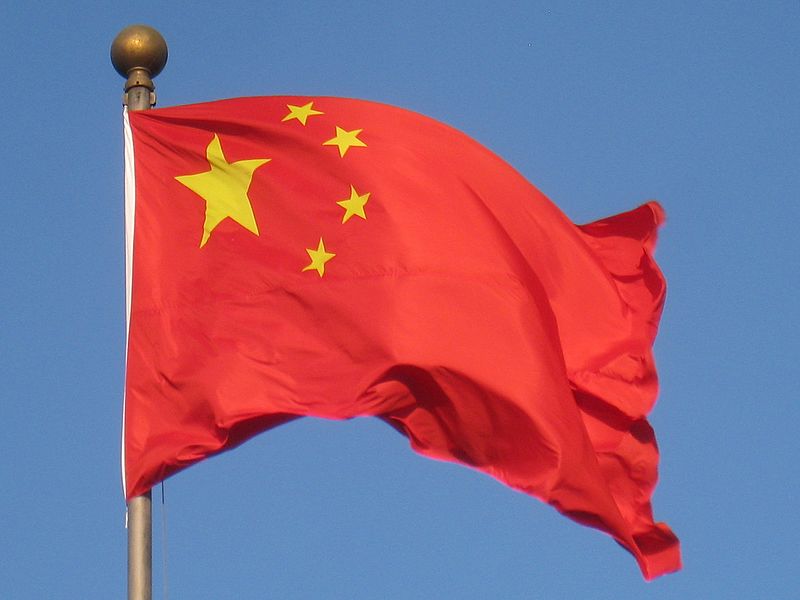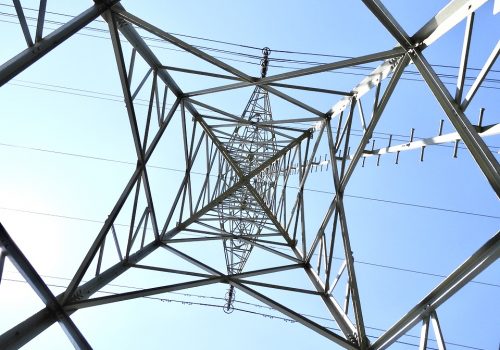For years, conventional wisdom among foreign policy wonks suggested that the only viable strategic partner for Gulf states was the United States. Only Washington had the resolve and the means to offer tacit (although not overt) security guarantees, and the strategic goals of Gulf states and the United States had for decades aligned with regard to stability, freedom of the commons, and combatting the threat from Iran.
That theory broadly still holds. With respect to one metric of engagement and commitment to the region—military deployment—the United States far outstrips all other countries. Some 46,000 US troops are stationed in Gulf states, multiple factors more than any other nation, with the United Kingdom (UK) and France maintaining some two thousand troops in the region.
But at the margins, the conventional wisdom that the United States is the only viable regional partner is now being challenged by a new reality: the main importer of Gulf states’ primary export—oil—is now China. At the same time, China’s strategic goals increasingly encompass stability in the Middle East, while a more activist foreign policy under Xi Jinping ensures greater involvement in the security, as well as economic, discourse in the region.
The main reason for this gradual but seemingly irreversible shift in strategic calculations is that China is now the primary buyer of Middle Eastern oil. The country’s sheer size and rapid growth over the past thirty years, combined with its relative paucity of domestic petroleum resources, have meant that Beijing has been the primary growth market for oil producers in recent years. And as Beijing has become more fuel import dependent—with some 72 percent of all oil consumed in China coming from overseas—the geopolitical significance of those oil imports has grown.
In 2019, oil exports from Saudi Arabia to China surged 47 percent year-on-year, according to Reuters, to total 1.67 million barrels per day (mbpd). That comprised about 16.5 percent of China’s total oil imports for the year, with Saudi Arabia serving as the country’s largest crude import source. Other Gulf states also regularly feature in the top ten suppliers of crude oil to China: according to the General Administration of Customs in China, Iraq was the third-largest supplier in 2019 at 1.01 mbpd, Oman the sixth at 0.63 mbpd, Kuwait seventh at 0.43 mbpd, Iran eighth at 0.31 mbpd, and the United Arab Emirates (UAE) ninth at 0.28 mbpd. Overall, the Gulf supplied more than 40 percent of China’s oil imports.
The Gulf is not just the source of the plurality of China’s oil imports. Natural gas is also a vital resource, and the fastest growing fossil fuel in China’s energy mix, with BP projecting that gas will jump from 7 percent in the current energy mix to 14 percent by 2040. Qatar currently supplies just over 20 percent of China’s imported gas, but a 2018 agreement between Qatargas and PetroChina to supply an additional 3.4 million tonnes of Qatari liquified natural gas (LNG) for twenty-two years adds a further 10 percent to China’s total LNG imports from the Gulf state.
That level of import dependence naturally raises the region’s strategic value for Beijing, leading to a political shift that has become apparent over recent years. In 2016, China issued its first ever white paper outlining its policy toward the Arab world, and President Xi Jinping visited the region in 2016 and 2018. Beijing has become increasingly interested in protecting the source of its most strategic import, deploying a rotational counter-piracy flotilla to the Indian Ocean since 2008 and opening its first military base in Djibouti in 2017. Chinese diplomats are also more present in the region, and the special envoy on the Middle East post has morphed from a role focused on the Israel-Palestine issue to one that encompasses a broader pan-regional diplomatic responsibility.
Meanwhile, Gulf states are also considering China more strategically. It is not just that China relies on the Gulf for its energy, but increasingly, the Gulf relies on China for its economic well-being. In 2018, according to data gathered by the Washington Post, China was the second-largest consumer of Saudi oil, at about 16 percent of total Saudi exports, just behind Japan. The top spot has now likely been usurped given the phenomenal growth in Chinese appetite for Saudi oil imports in 2019. Similarly, China is the leading or one of the leading clients for all other Gulf oil producers.
Even beyond oil, China is the most important trade partner for the region’s states. It is the most significant trade partner for the Gulf Cooperation Council (GCC) countries and serves as one of the region’s most significant investment partners.
As such, Gulf states now view Beijing as an important consideration to weigh in their strategic calculations, offering valuable concessions in oil fields to Chinese companies, buying Chinese military equipment, and signing strategic partnership agreements. Even China’s soft power has also been increasing—in the UAE, for instance, teachers have been hired to offer Mandarin classes in sixty schools, the government has thrown lavish Chinese New Year celebrations, and national landmarks have been lit up with public messages of support for China during the current coronavirus outbreak.
The strategic calculations on both sides of the equation thus appear to be evolving, as China becomes more reliant on the Gulf and vice versa. China is not yet committed to the region in anywhere near the same way as the United States, and despite much commentary to the contrary, the United States is not abandoning the region as it continues to pursue a range of objectives including: guaranteeing freedom of navigation, supporting Israel, deterring Iran, and suppressing terrorist and insurgent movements. But the sands are shifting, China’s regional influence is growing, and over time, willingness for Beijing to offer and Gulf states to welcome a range of strategic initiatives is likely to increase.
Christian Le Miere is a co-founder of Arcipel & Associates in London, United Kingdom.
Learn more about the Global Energy Center

The Global Energy Center develops and promotes pragmatic and nonpartisan policy solutions designed to advance global energy security, enhance economic opportunity, and accelerate pathways to net-zero emissions.
Image: Flag of the People's Republic of China, Beijing, China (Daderot/Wikimedia Commons)

